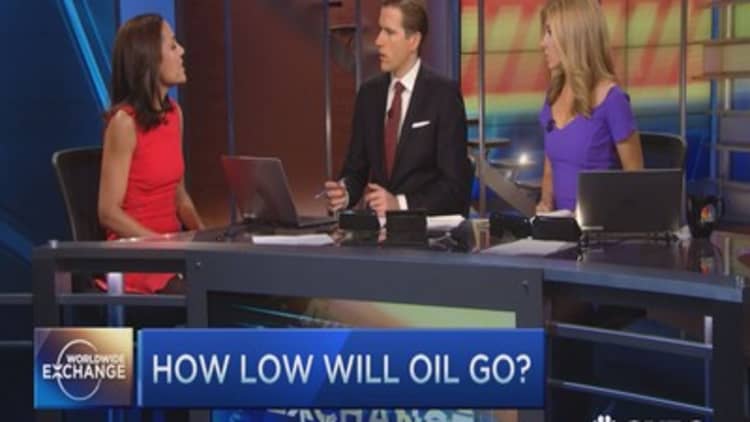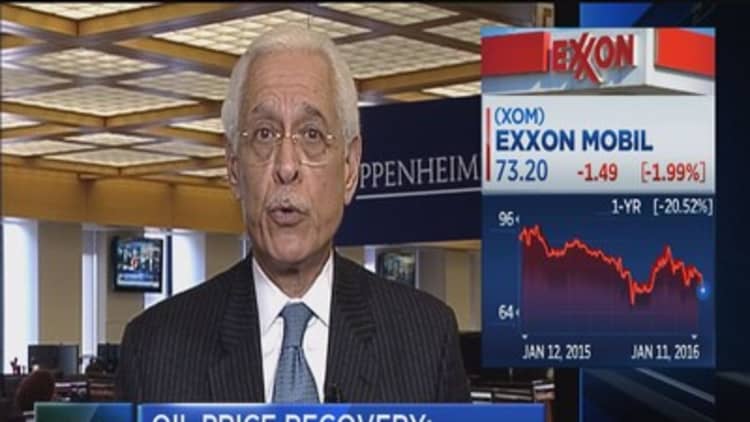


With ever-increasing sectarian tensions in oil-producing countries, it may be hard to believe that crude prices are continuing to fall. But look no further than the worldwide crude glut for the reason, said Helima Croft, global head of commodity strategy at RBC Capital.
"We had ISIS attacks on Libyan facilities last week, and the market just shrugged it off," Croft told CNBC's "Worldwide Exchange" on Monday. "If this had been a couple of years ago and we were having this conversation, oil would be substantially higher."
The perception of oversupply is stronger than ever, said Croft. "You literally need to see a physical supply disruption out of Saudi Arabia for anyone to get excited."
Global oversupply and weak demand have driven prices down since 2014, the last time crude traded above $100 a barrel. U.S. companies have since pulled back on exploration, and production continues to drop.
"Last year was exceptional, we were at a five-year high for demand and look where prices were," Croft said, noting crude finished January 2015 at more than $50 per barrel.
U.S. oil, as measured by West Texas Intermediate crude, dipped below $32 per barrel in late-morning trading Monday, hitting fresh 12-year lows. WTI lost more than 10 percent last week and about 70 percent since June 2014.
Read MorePain to gain: Crude prices to triple?
Croft said Middle Eastern producers were expecting to see prices bounce back by now.
"They did not expect we'd be in this price environment with U.S. production slowing," she said. "The Saudis are taking on austerity measures to try and endure lower for longer."
Saudi Arabia is bracing for the "lower for longer" environment in its 2016 budget, released by the kingdom's Ministry of Finance last week. The country is fighting record deficits and introducing reforms to ride out the low-price environment.
OPEC shows no sign of a slowdown in production overseas. But Croft said dialogue surrounding the issue might be overblown.
"I don't think there are a million additional barrels out of OPEC," Croft said. "I think the Iranians can maybe do 375,000 to 500,000, but I don't think OPEC is going to produce the type of gains we saw last year."
The question now is, how low will oil go? Goldman Sachs predicted as low as $20 a barrel in September, which Croft said is a possible bottom, but not likely.
"I think we could certainly in a bad macro headline crash through 30 into the 20s," Croft said, referring to Goldman's prediction.
But given that U.S. production is coming down, and demand has not gone over the cliff yet, Croft said, "I don't think so."


